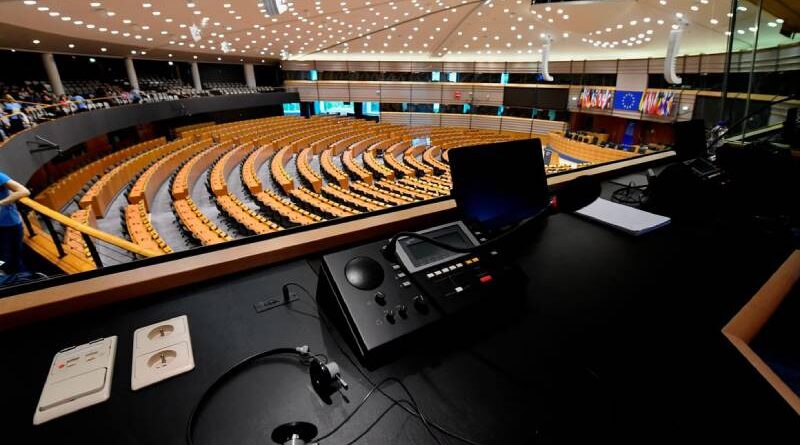Work as a Freelance Interpreter at the EU
The European Parliament, the European Commission and the Court of Justice of the European Union each have an interpretation service, but the selection of freelance interpreters is carried out jointly.
Freelance interpreters routinely work alongside staff interpreters in the interpreting services of the European Parliament, European Commission and Court of Justice. We mainly work in the 24 official languages of the EU, but occasionally we provide interpretation in other languages as well. For freelance interpreters, there is no nationality requirement.
To become a freelance interpreter, you need to succeed an accreditation test. You will find all relevant information on the various steps of the test cycle here. The calendar will show you upcoming accreditation tests for your language.
1. Eligibility
You need one of the following:
- BA in Conference Interpreting (4 years)
or - MA in Conference Interpreting
or - BA in any subject and
a Post-graduate diploma in Conference Interpreting of at least one academic year of full-time study
or
at least one year of professional experience (documented evidence of at least 100 days worked) as a conference interpreter at the level required for international meetings (experience as a court interpreter, liaison interpreter, public service interpreter or company interpreter does not count). - Have a language combination that is in line with the required accreditation profiles. Check the current language profiles required by the EU interpreting services. These are subject to change, to reflect prevailing recruitment needs.
- Have not failed an accreditation test three times (failure to attend without a justified reason counts as a fail). Except if the interest of the services so requires, before a fourth (and each subsequent) application can be accepted, a waiting period of five test years shall apply.
2. Calendar
Accreditation tests are scheduled as necessary, according to the recruitment needs of the institutions. An indicative calendar of accreditation tests is published every year but may be subject to change.
3. Accreditation Test
If your application is considered eligible, you will be invited to take the accreditation test.
The accreditation test involves the following for each of the tested languages:
- Simultaneous interpretation of a speech (10-12 minutes)
- Consecutive interpretation of a speech (± 6 minutes)
You will be tested from your passive languages into your active language and/or retour; the Screening Committee will choose the tested languages from your declared language combination, in compliance with the language profiles required for accreditation needs. Both consecutive and simultaneous tests will take place in remote, via a remote testing platform.
You will first be invited to record your simultaneous interpreting performance for all the tested languages; only if you are successful in the simultaneous test will you then be invited to sit the consecutive test.
An Inter-institutional Selection Board will evaluate your performances on the basis of the marking criteria. You will receive the results in writing including feedback, which will enable you to understand how you performed on each of the marking criteria.
4. Entry into joint database
Successful candidates in the accreditation test are put into the joint database of accredited Conference Interpreting Agents (ACIs) and can be recruited by the three interpreting services of the European Union.
If you have an ongoing contractual relation with the EU Institutions (e.g. as a trainee, contract agent, temporary agent or official), you cannot be added to the Joint List until your contract comes to an end. For further information, see the Procedure on ACI status on the Joint List.
Admission into the joint database does not imply a right to be recruited.
5. Apply!
Now that you know everything about the different steps, complete the online application.
You will be asked to submit:
- your CV;
- degrees and/or diplomas giving details of qualifications obtained for each interpreting component;
- where relevant, proof of required conference interpreting experience (experience as a court interpreter, liaison interpreter, public service interpreter or company interpreter will not be taken into account);
- for languages not covered by the degree(s) or diploma(s), evidence of how the language knowledge was acquired to the level of a working language (such as certificates, a personal statement, proof of relevant work experience).
Once you have done this, you will be sent an acknowledgement of receipt.
You can apply at any time but we advise you to check specific deadlines per A language on the indicative test calendar. It is important that you submit all necessary documents by the given deadline for applications.
More information at: https://europa.eu/interpretation/freelance.html
